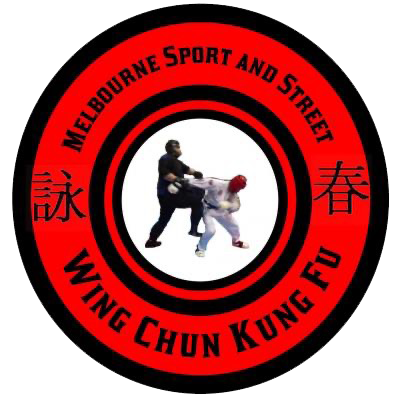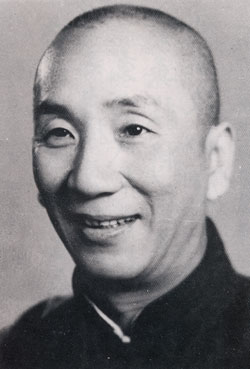Discover the Legacy and Impact of Ip Man, the Renowned Wing Chun Grandmaster
By Maurice Novoa a master under the Yuen Kay Shan, Ip Man and Pan Nam lineages.
Introduction:
Ip Man, was born to Ip Oi-dor and Ng Shui born on 1 October 1893. Passed away on 2 December 1972. He was a famous martial artist and a grandmaster of the Wing Chun martial art. He had several students who later became martial arts masters, including the legendary Bruce Lee.
In this article, we will explore the early life of Ip Man. His journey to Hong Kong, opium addiction, and teaching Wing Chun to escape poverty.
Early life
Ip Man was born in Foshan, Guangdong, in a wealthy family and received a traditional Chinese education. He became Chan Wah-shun’s last student, learning Wing Chun at the age of nine or thirteen. Due to Chan’s age, he was only able to train Ip for three years before retiring to his village. Ip learned most of his skills and techniques from Chan’s second-most senior student, Ng Chung-sok.
At the age of 16, Ip moved to Hong Kong and attended school at St. Stephen’s College. One day, a classmate introduced him to Leung Bik, an expert in Kung Fu techniques who lived with them. Ip challenged him to a duel and was easily overwhelmed. Discouraged by his defeat, Ip left without a word and did not dare mention that he knew Kung Fu. Subsequently, he trained with Leung Bik until Leung’s death in 1911.
1910s
Ip returned to Foshan in 1916 and became a police officer for the Nationalist government. Although he did not run a martial arts school, he taught Wing Chun to subordinates, friends, and relatives. Notable students of this time were Lok Yiu, Chow Kwong-yue, Lun Kah, Chan Chi-sun, and Lui Ying.
In 1949, after the Chinese Communist Party won the Chinese Civil War, as Ip was a member of the Kuomintang. He left Foshan for Hong Kong with his wife and elder daughter. In Hong Kong, Ip struggled with unemployment, and despite his prior experience as a policeman. Ip was unable or refused to join the Hong Kong Police Force. To support his family and opium addiction, he needed a steady income.
1950s
Ip Man began teaching Wing Chun in the early 1950s, presumably to escape poverty. According to allegations, to feed his opium addiction. Sometime around 1955, he started an extramarital affair with a woman from Shanghai. She passed away in Foshan due to cancer after giving birth to their son, Ip Siu-wah.
However in the 1960s, Ip Man gained recognition in Hong Kong and attracted affluent and better-educated students. This newfound fame also provided him with financial stability. In 1967, Ip and a group of his disciples founded the Ving Tsun Athletic Association to address his financial struggles, which were primarily due to his opium addiction. Nonetheless, one of his former students alleged that Ip used tuition fees to sustain his drug habit.
Martial Arts Achievements
In the past
Ip Man had several prominent students who became skilled martial artists, including William Cheung, Wong Shun-leung, Bruce Lee, and others. He also wrote a comprehensive history of Wing Chun, offering valuable insights into its development and evolution.
In Present Day
Ip Man Museum exhibits his artifacts at Foshan Ancestral Temple. The museum provides visitors with a fascinating glimpse into the life and teachings of this legendary martial artist. Ip Man’s films popularized his legacy and teachings worldwide.
Final Thoughts
In conclusion, Ip Man was a remarkable martial artist who had a difficult journey throughout his life. From being a wealthy child in Foshan to struggling with unemployment and addiction. Ip’s life is a tale of ups and downs. Despite the challenges, he persevered and taught Wing Chun until his death.
Top 10 Questions about Ip Man
Ip Man was a Chinese martial artist who is best known for his role in popularizing the Wing Chun style of Kung Fu. He was born in Foshan, Guangdong, China, in 1893, and began studying Wing Chun under the tutelage of Chan Wah-shun when he was a teenager.
Ip Man’s legacy is significant in the world of martial arts, particularly in the promotion and development of the Wing Chun style. He is known for his skill as a practitioner and teacher, and for his efforts to spread Wing Chun both in China and abroad.
Ip Man emphasized several key principles in Wing Chun, including economy of motion, centerline theory, and simultaneous defense and attack. He also stressed the importance of using sensitivity and relaxation to develop effective technique.
Ip Man’s training and teaching style emphasized practical application and real-world combat scenarios, rather than purely theoretical or aesthetic training. He also placed a strong emphasis on developing strong fundamentals and technical proficiency.
Some of Ip Man’s most famous students include Bruce Lee, Ip Chun, William Cheung, Wong Shun Leung, and Moy Yat. These students helped to spread the popularity of Wing Chun both in China and abroad, and played a significant role in its development and evolution.
The popular Ip Man movie series is a fictionalized retelling of the life and legacy of Ip Man, and is not entirely accurate in its portrayals of his life and experiences. However, the films have helped to raise awareness of Wing Chun and its history, and have inspired many people to take up the martial art.
Ip Man’s experiences during World War II and the Japanese occupation of China had a significant impact on his martial arts philosophy and teachings. He believed that martial arts could be used to defend oneself and one’s community. Furthermore, that they had an important role to play in resisting oppression and tyranny.
Some of the key techniques and training methods used in Wing Chun include the use of the centerline, trapping and grappling techniques, and the development of sensitivity and relaxation. These methods differ from other martial arts styles in their emphasis on practical application and simplicity of technique.
Wing Chun shares some common roots with other Chinese martial arts styles, particularly those that originated in southern China. However, it has its own unique characteristics and training methods. It differs from other styles in its emphasis on close-range combat and efficiency of technique.
Legacy
Ip Man’s legacy has had a significant influence on the modern practice of Wing Chun around the world. His popularity and reputation as a skilled martial artist and teacher have helped to spread the practice of Wing Chun globally. Many practitioners continue to study and promote his teachings today.
Challenges
One of the biggest challenges facing Wing Chun practitioners today is the issue of lineage and authenticity. With so many different interpretations and variations of the style, it can be difficult for practitioners to determine which lineage or approach is the most authentic or effective. Additionally, Wing Chun’s focus on close-range combat and hand-to-hand techniques can make it difficult to adapt to modern combat scenarios that involve weapons or long-range attacks. As a result, many practitioners are seeking to modernize and adapt Wing Chun to better fit the demands of contemporary combat situations.

